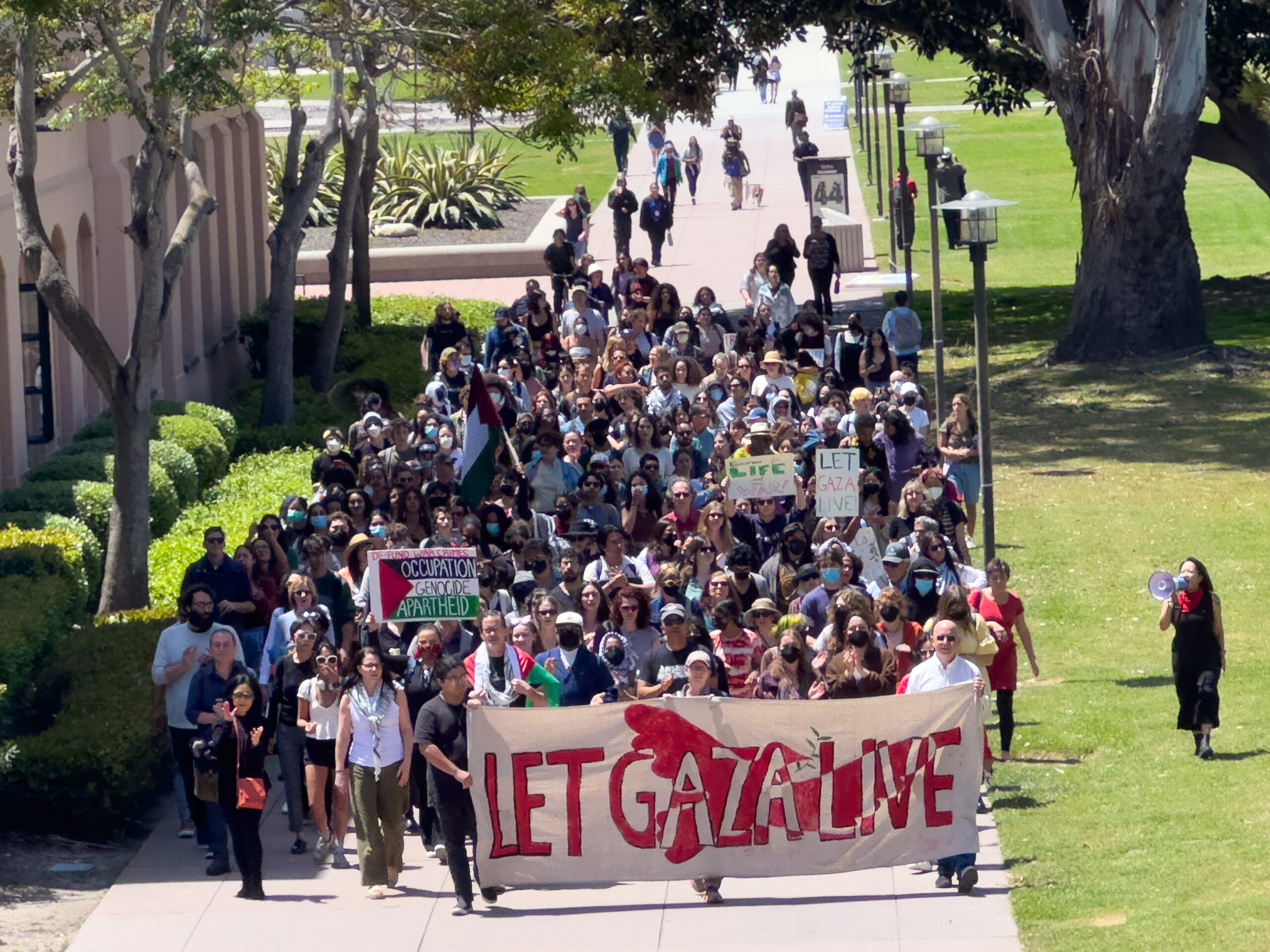Title VI of the Civil Rights Act of 1964 guarantees that ‘no person in the United States, shall, on the ground of race, color, or national origin, be excluded from participation, in, be denied the benefits of, or subjected to discrimination under any program or activity receiving financial assistance.’ While the financial independence of private colleges has rendered these institutions largely free from unwanted government regulation, their participation in Title IV federal student aid programs requires them to abide by Title VI of the Civil Rights Act. Now more than ever, it is imperative that Title VI mandates are enforced, as pro-Palestinian protesters continue to make their presence felt on the campuses of private colleges all across California.
The Claremont Independent-a student-run publication serving the Claremont Colleges in Southern California-reported that on the one-year anniversary of the October 7th attacks, hundreds of students across the Colleges disrupted classes, spray-painted classrooms and college property at Pomona College, and restricted the movement of their fellow students. At USC, a stand-off requiring heightened security occurred between supporters of both sides of the conflict, creating what one student described as ‘a very hostile, very unwelcoming environment.’
In May, the Department of Education issued a letter reminding private colleges of their duty to comply with Title VI’s mandates and providing them with a set of guidelines to evaluate ‘alleged discrimination, including harassment, under Title VI.’ Critics, however, have been quick to point out that under the First Amendment, the government may not pressure entities they regulate into sanctioning private speech by withholding funding. Furthermore, under the First Amendment’s exacting standards, the Foundation for Individual Rights and Expression’s legal director Will Creeley notes that while abhorrent, calls for genocide against Jewish students are still permissible under the First Amendment unless they are ‘directed at a specific Jewish student or group moving threateningly towards him.’
The DOE, however, acknowledges that ‘the offensiveness of a particular expression as perceived by some students, standing alone’ isn’t sufficient to trigger Title VI scrutiny. Instead, its standard for what constitutes the existence of a ‘hostile environment’ goes beyond offensive speech, and instead describes the type of harassment that is ‘so severe or pervasive that it limits or denies a student’s ability to participate in or benefit from the school’s program or activity.’
Much of the activity that has taken place on college campuses falls squarely within that description: according to one Pomona College student, who is Jewish, following the protests on October 7th, the building which houses the politics and economics departments-two of the most popular departments on campus-were shut down and will remain closed for the next two weeks. Students cannot use their classrooms, faculty cannot use their offices, and board members have been sent pro-Palestinian propaganda both at their work and home addresses. Kevin Feigelis, a PhD student at Stanford University, testified to a House Committee on Education and the Workforce that a hostile environment had been created by faculty members who segregated Jewish students in his classroom and celebrated the fact that Jewish students didn’t feel safe on campus, and by students who targeted and disrupted classes taught by Jewish faculty.
The DOE has this year launched hundreds of Title VI-related investigations since the initial October 7th attacks, 20 of which were into colleges and universities in California. Under the Office of Civil Rights’ Case Processing Manual, the OCR may ‘suspend, terminate, or refuse to grant or continue federal financial assistance’ if they find that these colleges have in fact engaged in discrimination under Title VI. Before that, however, they may develop resolutions detailing specific actions the college must take to resolve compliance concerns and ensure that future violations don’t occur.
This is the approach California has taken with institutions receiving state-funding, both private and public: Assembly Bill 2925 was introduced earlier this year to tackle rising anti-Semitism on college campuses, and would require these institutions ‘to include training to address discrimination against the five most targeted groups in the state,’ which today would undoubtedly include Jews.
If the State and Federal Governments are serious about rooting out anti-Semitism on college campuses, they must put their money where their mouth is and withhold funding from colleges which flagrantly violate Title VI’s protections. The Civil Rights Act was enacted to stamp out discrimination, and it would be a betrayal of its legacy if the government allowed colleges to instead enable it on their campuses.
Nikhil Agarwal is a research associate at the Pacific Research Institute.
Photo Credit: Glenn Beltz

